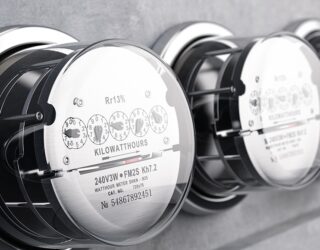Utility Payment Plans
- September 1, 2017
KEY TAKEAWAYS
- If utility expenses are getting hard to manage, there are options that might make sense for you to move forward.
- From communicating with utility companies as early as you can, to exploring hardship options, there might be a path forward.
- Connecting with a trusted national nonprofit like GreenPath is also a helpful option.
You’re not alone if you have a hard time paying your utility bills. It’s not easy to predict how much your utility payments will be. They change with the seasons.
Most companies understand this. So they offer people the choice of paying their bills through a budget plan.
Communicate First
Open communication is key. Reach out to your utility providers as soon as you anticipate difficulties in paying your bills. Many companies have dedicated customer service representatives who are willing to work with you to find a suitable solution.
Budget Plans
Budget plans can vary by company. But they all feature a fixed monthly bill that is easier to budget. Your utility company will set your bill based on your average usage. Let’s say you use $1,200 of gas per year. The gas company may charge you a set amount of $100 per month. If you use more or less than the estimate, the gas company will adjust your bill for the next year.
To enroll in a budget plan, call your local providers. You may even be able to enroll through their websites.
If you’re thinking about a utility payment plan, there are a few things to consider. Will you be charged a set-up fee? Many companies offer the service for free, but some charge a fee.
Be sure to pay attention to your monthly bills. They will still report your actual energy usage. This will help you make adjustments to your utility payments as needed. If you manage to cut back, your payment can go down the next year.
Plans to Avoid a Shutoff
Paying utilities should be a top priority. However, if you suffer a severe hardship, there are some steps you can take to avoid a shutoff.
First, contact your company and explain your situation. Many offer short-term payment programs that can help. Some of these programs are for low-income families. Others programs are for all income levels. If you don’t contact the company, you will never know what they offer.
You also may consider seeking assistance from your church, a local charity, or your local town, city, county or state. The United Way (dial 2-1-1) can direct you to assistance that may be available in your area.
Keep in mind that special programs may be available for seniors, active military personnel or people suffering from certain medical conditions.

It may help to carve out a budget with a financial counselor and go over your options. Call us for a free financial counseling session.
Shutoff Policies
Utility shutoff policies vary from company to company, but service may typically be shut off for:
- Unpaid past-due utility bills
- Failure to pay a requested security deposit
- Unauthorized energy use that includes tampering with a meter
- Service typically cannot be shut off if a customer:
- Is enrolled in a Winter Protection Plan
- Has notified the utility of a qualifying medical emergency in the home
- Has advised the utility that an unpaid bill is in dispute
There Are Options that Work for You
In times when household expenses become challenging to manage, it’s important to recognize that there are options available for utility payment plans.
Life’s financial journey can bring unexpected twists, and it’s okay to seek support. Many utility providers understand the difficulties families face and offer flexible payment plans tailored to individual circumstances. These plans are designed with empathy, allowing you to navigate temporary financial hurdles without added stress.
Initiating a conversation with your utility company about your situation can open doors to solutions that accommodate your needs, ensuring that essential services remain accessible while you work through challenging times. Remember, there is understanding and assistance available, reflecting a shared commitment to supporting you on your financial path.
You are not alone. The caring financial counselors at GreenPath are ready to connect with you about your specific financial situation.

Julie Rogier (She/Her)
With a multi-decade career in communications, Julie Rogier serves on GreenPath’s content marketing team. She has presented on financial wellness for groups including the 2021 and 2022 Financial Services Midwest Summit, and regularly writes about financial health and wellness for several publications including U.S. News and World Report.

GreenPath is a trusted, national nonprofit that has helped more than 65,000 households eliminate more than $200 million in debt since 1961. Call today.
Client Testimonial
“I was impressed by the kindness and openness of the reps and the fact that they don’t judge me. They’re 100% there to help me. Working with GreenPath has definitely improved my credit score.”

Douglas of Saint Ignace, MI via ConsumerAffairs.com
Free Financial Courses from GreenPath's LearningLab
Free Financial Courses from GreenPath's LearningLab+
GreenPath Counseling Hours
Call 800-550-1961 for immediate help. Or request a call from a counselor at a more convenient time.
Call 877-337-3399 for immediate help. Or request a call from a counselor at a more convenient time.
- Monday-Thursday 8:00 am – 10:00 pm Eastern
- Friday 8:00 am – 8:00 pm Eastern
- Saturday 9:00 am – 6:00 pm Eastern
